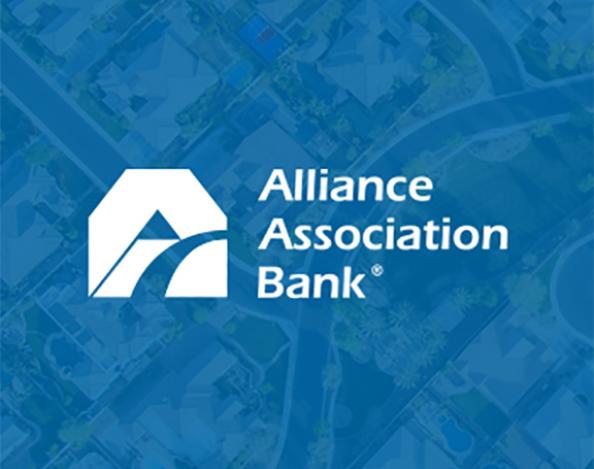Planning for Today and Into the Future: Creating a Strong HOA Balance Sheet
An HOA is tasked with maintaining a community and protecting members’ property values. To do that, just as any other business, HOA management companies and boards are charged with ensuring the good financial health of their communities so that if costly repairs or significant improvements need to be made, they have the resources in place to successfully undertake them.
To ensure an HOA is on the strongest financial footing to take care of both anticipated expenses and unexpected costs today and for years to come, creating a strong balance sheet is critical. At Alliance Association Bank, some of the counsel we share with clients looking to strengthen their balance sheet begins with relatively easy-to-undertake tasks, including:
1. Conducting a reserve study
As community managers, perhaps one of the single-most important roles is to ensure there is an accurate understanding of the current state of the community, an eye to potential repairs, replacements, or undertakings, as well as their cost and timing. Having an accurate lay of the land allows is the first half of conducting a reserve study. The second half puts the spotlight on the HOA’s finances, specifically understanding the HOA’s revenue, expenses, and reserve fund balance, which gives HOA leaders the chance to adjust as needed. Knowing this will allow the management team to build up a corresponding and appropriate cash reserve.
2. Being mindful of liabilities
From debt and assessment delinquency to the potential downside of lawsuits and associated challenges, HOAs need to ensure they have a sound understanding of myriad financial risks and liabilities to which they are exposed. Ensuring dues are being collected, appropriate fees are being charged, professionals are tapped for their expertise and work is being done effectively by trained and qualified vendors will all help ensure that exposure to risks are low.
3. Ensuring accurate bookkeeping
Accurate bookkeeping is important in ensuring a financially healthy HOA. Keeping note of cash flow, money spent and how much is left at the end of the day, provides a window of transparency that provides an honest look into the state of the association, and allows leaders to plan for improvements or capital projects that need to me made. In addition to helping HOAs identify any potentially fraudulent activity among individuals who may have access to its funds, accurate bookkeeping also ensures that HOA managers can compare what they budgeted for expenses with actual expenses. This ensures a better understanding of an undertaking’s actual impact on the association’s bottom line.
4. Performing an internal audit
Like an annual check-up, an internal audit takes stock of the association’s financial health. By objectively studying the association’s financial statements, an internal audit helps leadership understand its financial standing as well as find ways to improve an HOA’s financial management. Ultimately, the tool not only ascertains an HOA’s finances, but provides transparency to members and third parties.
5. Choosing a bank that knows HOAs
There’s no mistaking that having access to professionals who understand the unique needs of HOAs is critical to helping fulfil its obligations. At Alliance Association Bank, our clients see first-hand the difference in the specialized approaches, tools and resources that can come from a financial institution with intimate knowledge of how HOAs operate and their associated obligations. These resources can help an HOA become a better steward of its community.
Understanding how to tackle financial challenges today to prepare for tomorrow is important to ensuring the health of a community. A strong balance sheet is critical to ensuring a solid foundation for years to come. With more than 18 years of experience, Alliance Association Bank’s team of HOA finance specialists can help put your HOA on firmer footing. For more information, please contact Matt Hall, Vice President of HOA Lending at (312) 215-0502 or [email protected].
Alliance Association Bank
Alliance Association Bank, a division of Western Alliance Bank, Member FDIC, delivers a tailored suite of deposit, financing and technology solutions designed for community management companies and homeowner associations nationwide. The bank’s relationship officers provide a broad spectrum of innovative and customized solutions to help community associations succeed, all with a high level of expertise and responsiveness. Alliance Association Bank is part of Western Alliance Bancorporation, which has more than $80 billion in assets. Major accolades include being ranked as a top U.S. bank in 2024 by American Banker and Bank Director. With significant national capabilities, Alliance Association Bank delivers the reach, resources and deep industry knowledge that make a difference for customers.
